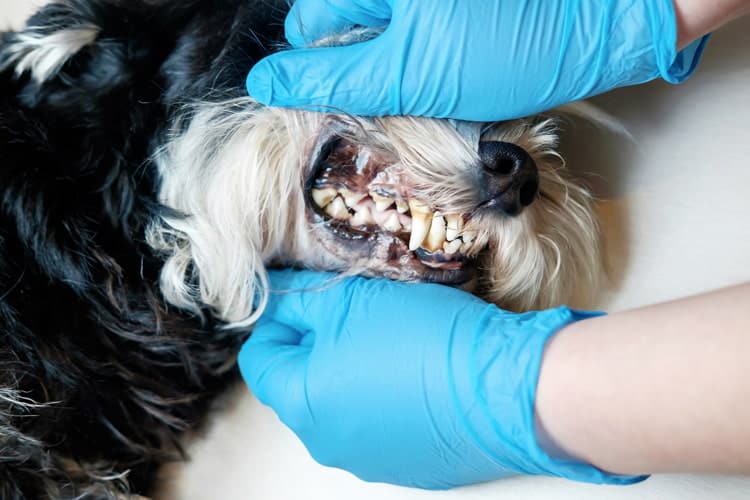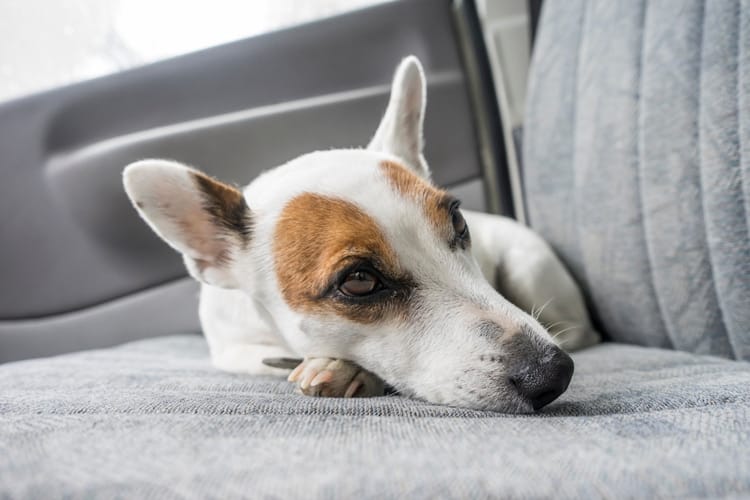One of my favorite things about doing this blog is learning. There are many things that I don’t know, and just because somethings don’t directly affect me doesn’t mean that they don’t exist. For example, I was surprised to learn that it is common for dogs to grind their teeth. Teeth grinding is something that I have never done, or at least I am not aware of ever doing it, but it is something that many dogs do. So, upon learning this, I thought it to be a great thing to post about and hopefully help dogs and their owners determine why it happens and what to do about it.
What is Bruxism?
Teeth grinding is also known as Bruxism. Bruxism is when the top and bottom rows of teeth rub against each other in a horizontal motion rather than the normal vertical rubbing that occurs when chewing. Bruxism can be a sign of health issues, and it is not something that should be ignored as it could be a sign of a much more serious condition. Ignoring the teeth grinding could also lead to serious dental issues such as tooth fractures, tooth infections, and pain in our teeth and gums and can also impart considerable stress on a dog’s jaw and possibly lead to arthritis.
Why Dogs Grind Their Teeth
As dogs, we probably have perfectly good reasons for grinding our teeth, but unfortunately, we cannot portray those reasons to our humans. Before we dive into what to do about a dog grinding its teeth, it is important to understand exactly why we might do it. It turns out that there could be multiple reasons for teeth grinding.
1. Oral Pain
Grinding our teeth is a natural response to oral pain and is our way of trying to relieve it. Oral pain is the most common reason that dogs grind their teeth. It can result from anything, including teething, tooth infection, and problems in our jaw. Just as we can’t relay any information to our humans, it may be next to impossible for them to figure out the cause of the pain we are experiencing.
The most common causes of oral pain are:
- Loose Teeth
As a puppy, loose teeth are normal, and a puppy grinding its teeth is a normal reaction to the pain that comes with teething. Once teething is over, a puppy should stop grinding their teeth on their own.
An adult dog with loose teeth, on the other hand, may have trauma to the mouth or even periodontal disease. Either of these issues will not correct themselves on their own and will require veterinarian intervention.
- Misaligned Teeth

Some breeds of dog are recognizable by their distinct underbite. This underbite is a misalignment of teeth, and for these certain breeds, it is not a problem at all. If the misalignment is extreme, though, it may cause teeth to rub up against the dog’s gums and create sore spots or even infection.
- Broken Teeth
Broken teeth are quite common in dogs. Not only can teeth break from serious jaw trauma, but they can also break from everyday dog things like playing with our toys or chewing on hard objects like large sticks or rocks. A broken tooth exposes the root to mouth bacteria and can then lead to infection and leave your dog in considerable pain.
2. Jaw Abnormalities
Dogs can also have a misaligned jaw. If this is the case, it could result in an underbite or an overbite. Either one of these may make it incredibly difficult for a dog to close its mouth and lead to teeth grinding. Dog breeds that are born with underbites, like a Boxer, for example, are more prone to grinding their teeth.
3. Stress
Stress in a dog isn’t always obvious, but it is very normal. Like humans, many things can induce stress and anxiety in a dog. To our owners, these things may not be obvious, which makes it difficult for them to keep us out of stressful situations. As dogs, we also don’t have many means of dealing with stress. Teeth grinding can be our way of dealing with it. Stress can lead not only to grinding our teeth during the day but also while we are sleeping.
4. Other Pain
Grinding our teeth may not just be a response to oral pain but could also be our way of trying to deal with other pain. Pain in our joints or even abdominal pain may cause us to grind our teeth in response.
The Effects That Grinding Teeth May Have on Oral Health
Bruxism can have many adverse effects on a dog’s oral health. Teeth grinding can lead to severe dental wear, tooth fractures, gum recession, tooth and gum infection, and chronic dental pain. But it’s not just our teeth and gums bruxism can affect. It can also lead to headaches, jaw pain, and issues in the jaw muscles, which can restrict jaw motion and inhibit chewing. Many of the causes of teeth grinding can also be adverse effects.
What to Do About A Dog’s Teeth Grinding

Because we as dogs can’t relay information to our humans as to why we are grinding our teeth. They must be intuitive and pay close attention to what may be going on, which can be difficult if they are not around to see us grinding our teeth. The signs of grinding can be very discreet until it has transformed into a major issue. Whether or not our owners see firsthand our teeth grinding, there are things they can do when the signs appear.
1. See a Vet
At the first sign of teeth grinding, you should take your dog to a vet. As I discussed before, teeth grinding is often a sign of an underlying issue that may not be easy for our owners to pinpoint. While it may take some trial and error, a veterinarian performs a thorough examination to try to determine the cause of the grinding. If there is a misalignment of the jaw, the vet may refer you to a veterinarian orthodontist who will better determine the treatment needed.
If your vet determines that the teeth grinding is caused by pain other than a misalignment, he or she will then determine the cause of the pain and treat it appropriately. As I said before, even for a trained professional, this could take some trial and error and considerable patience from everyone.
2. Provide a Well-Balanced Diet
A well-balanced diet that offers the nutrition dogs need is the key to long-term health. It may seem funny to think diet may not only prevent teeth grinding but also fix it, but there may be something in the dog’s diet that is irritating them. As I touched on before, teeth grinding is often a response to something going on in the body. Maybe we are having an unseen reaction to a food or foods we’ve eaten. This reaction could cause pain or make us uncomfortable enough to pick up this bad habit in response.
3. Regular Exercise
Regular exercise is extremely important for both physical and mental health. Getting this stimulation regularly can prevent any kind of destructive behavior, including teeth grinding.
4. Reduce Anxiety and Stress
Stress and anxiety are key factors that can contribute to a dog grinding their teeth. You can help reduce anxiety with socialization. Introducing a dog to new social settings with both other dogs and humans can help reduce stress and prevent or stop already occurring teeth grinding.
Another way to help us reduce stress is obedience training. Proper training helps dogs build quality relationships and establish trust with their owners as well as unfamiliar humans and other dogs. Much of our anxiety hinges on the unknown, so familiarizing ourselves with these unknowns can help considerably in reducing our stress and anxiety.
I must admit that I was shocked when I found out just how common it can be for a dog to grind its teeth. I was also shocked to learn just how serious of a condition it can be. I have never ground my teeth, but now that I know it affects many dogs, I know I am not immune to it happening to me. Because teeth grinding can indicate some underlying problem, I realize now that it can occur at any age for many reasons. I’m lucky that my mom and dad are very in tune with my needs and always err on the cautious side when it comes to my health. I know they would not hesitate to seek help if I was ever to start grinding my teeth, and out of everything they could do to help me with this situation, that could be the most important.
